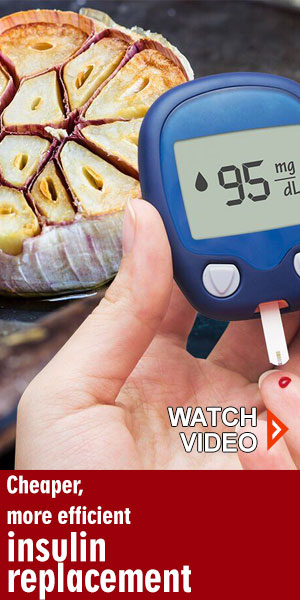What is Diabetes?
Diabetes is a disease that causes a person’s blood sugar level to become too high. Diabetes occurs when there is not enough insulin in the body. Insulin is a hormone that helps the sugar from food get into the cells of your body.
Diabetes can cause many health problems if left untreated, including:
High blood sugar: If blood sugar levels stay high for a long time, they can cause nerve damage, kidney damage, heart disease, and eye damage.
Nerve damage: Nerves that help control movement can become damaged.
Kidney damage: Diabetes can damage the blood vessels in the kidneys, causing them to leak protein into the urine.
Heart disease: Diabetes can cause the build-up of fat deposits in the arteries, which can lead to heart disease.
Eye damage: Diabetes can cause blindness and damage the retina of the eye.
What Are the Potential Complications of Diabetes?
The most common complication of diabetes is heart disease. This is because the condition causes an increased level of resistance to insulin. Insulin is a hormone that helps to control the levels of blood sugar. High levels of blood sugar will result in more insulin production, which allows the body to take on more sugar to be used for energy.
However, this leads to high levels of sugar in the blood, which can affect the heart and lead to numerous heart problems. Examples include:
- High blood pressure
- Heart hypertrophy
- Heart valve disease
- Heart abnormalities
- Heart failure
- Erectile dysfunction
- Kidney disease
- Eye disease
- Nerve disease
- Foot disease
What Dietary Changes Are Necessary with Diabetes?
Diabetes is a condition that causes blood vessels to constrict and reduces the amount of blood flowing throughout the body. This can cause damage to the vital organs in the body, including the eyes, nerves, and kidneys. If left untreated, diabetes can provoke ulcers, infections, nerve damage, and even death.
There are two main types of this disease: type I and type II.
Type I diabetes is an autoimmune condition where the body attacks the insulin-producing cells, while type II diabetes is caused by excessive weight. Treatment can also vary depending on how severe the condition is.
Although there is no cure for diabetes, there are ways to manage it. Doctors usually prescribe medication to treat the condition, but diet is also essential. A diabetes diet consists of eating foods that are low in sugar, fat, and calories. Here is a list of foods you should limit or avoid:
Sugary foods: Avoid foods that contain high amounts of sugar, including soft drinks, candy, and processed foods.
Unhealthy fats: Avoid foods that contain a lot of unhealthy fats, including fried foods and baked goods.
Saturated and trans fats: Avoid foods that contain trans fats, hydrogenated fats, or partially hydrogenated fats.
Alcohol: Limit the amount of alcohol you drink, since alcohol has a lot of sugar.
Nutrient-poor foods: Make sure to eat a variety of healthy foods, including fruits, vegetables, whole grains, and low-fat dairy products
What Are the Treatment Options for Diabetes?
People who suffer from diabetes face many challenges. One of the most significant and dangerous challenges is managing blood sugar levels. Controlling blood sugar levels can be a challenge for many people. However, diabetes can be managed in several ways.
Diet: A diet that emphasizes vegetables and whole grains will be healthier and easier to manage. However, certain medications, such as insulin, may require a diabetic diet.
Exercise: Regular exercise can help people with Diabetes manage their blood sugar levels. However, before beginning an exercise program, those with diabetes should consult with their doctor.
Medication: Medication can help an individual with diabetes to control their blood sugar levels. People with diabetes should consult with their doctor to determine the type of medication best for them.
Insulin: Insulin is the most common type of medication prescribed for diabetics. Insulin can be purchased in a vial or through a medical supply company.
Continuous Glucose Monitor: A continuous glucose monitor is a sensor that measures blood sugar levels and transmits the readings to a receiver. This information is then displayed on a monitor.
How Can Diabetes Be Prevented?
Diabetes can be prevented through a combination of lifestyle changes and medications.
There are several lifestyle changes that you can make to help prevent diabetes.
These changes include reducing your overall caloric intake, eating a balanced diet, exercising regularly, and avoiding excessive alcohol consumption.
Medications are also important in the prevention of diabetes. Insulin is the hormone that helps your body to regulate blood sugar levels. If you have diabetes, your doctor may prescribe insulin to help control your blood sugar levels. In addition, diabetes medications can help to reduce the risk of heart disease and other chronic health conditions.
Preventing diabetes is a multi-faceted effort that requires the involvement of both you and your doctor. By making a few simple changes to your lifestyle, you can help to prevent diabetes from developing in the first place.
How Can Lifestyle Changes Help Manage Diabetes?
Diabetes is a chronic disease that affects the way the body metabolizes food. It is increasing in prevalence around the world and is the primary cause of blindness, kidney failure, and limb amputation.
Diabetes can develop as the result of inadequate production of insulin throughout the body or as a result of an inadequate insulin response. Type 1 diabetes is most commonly caused by inadequate production, while type 2 diabetes develops as a result of an excessive response by the body to the insulin being produced.
Diabetics are not the only ones susceptible to the adverse effects of diabetes. Those close to diabetics are also at risk for certain complications that can develop as a result of the disease.
Lifestyle changes, such as diet and exercise, can help to manage diabetes and prevent the development of certain complications. Additionally, certain environmental factors — such as smoking and exposure to toxins — can exacerbate the symptoms of diabetes.
Some lifestyle changes that can be beneficial to diabetics to reduce their symptoms include:
Eating a healthy diet: a diet that includes whole grains, vegetables, fruits, and lean protein can help diabetics regulate their blood sugar levels.
Maintaining a healthy weight: extra weight increases the body’s demand for insulin, which in turn increases the symptoms of diabetes.
Exercising: short, frequent exercise can prevent blood sugar levels from rising in response to activity and help maintain the body’s ability to use insulin.
Smoking cessation: smoking can make it more difficult for diabetics to control their blood sugar levels.
Limiting exposure to toxins: certain toxins such as alcohol and certain drugs can make it more difficult for diabetics to regulate their blood sugar levels.
What Are the Latest Advances in Diabetes Research?
Diabetes research has been advancing rapidly in recent years. Here are some of the latest breakthroughs that you should know about:
New Treatments: Scientists have developed a new treatment option for diabetes called immune tolerance therapy. This involves removing part of the immune system that creates antibodies against the insulin hormone. This treatment is still in the experimental stages, but early results suggest that it might be an effective treatment for people with type-1 diabetes.
New Drugs: GlucoTrust has been approved by the FDA for use in people with type-2 diabetes. This drug works to lower blood sugar levels. While it’s not a cure, it’s another treatment option for people with type-2 diabetes.
New Understanding: Scientists are learning more about why diabetes affects different people in different ways. One type of diabetes, called monogenic diabetes, is caused by genetic mutations. Researchers are now studying the different genetic mutations that can cause this type of diabetes.






















